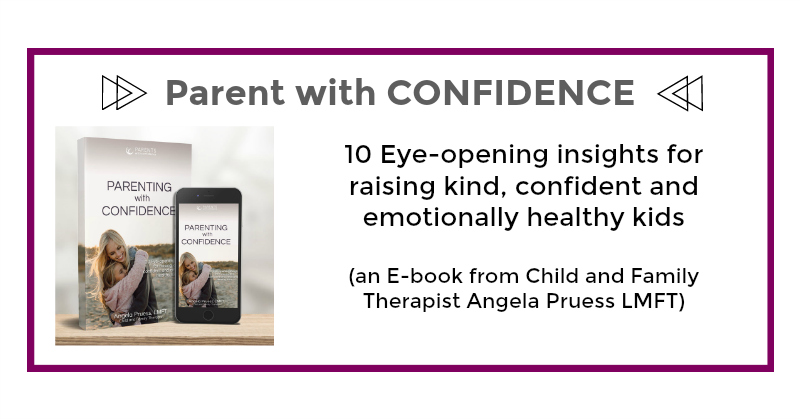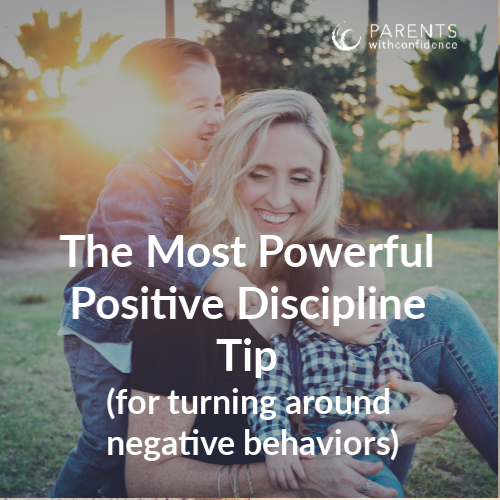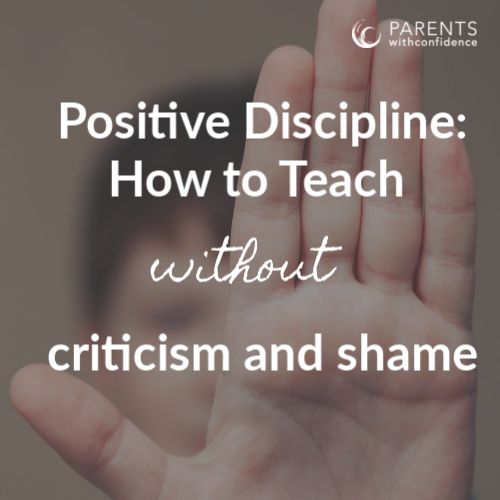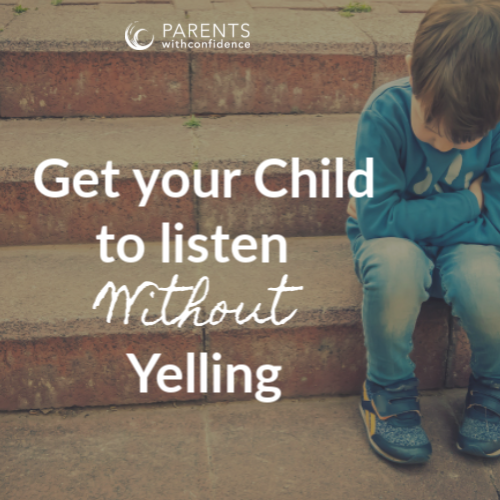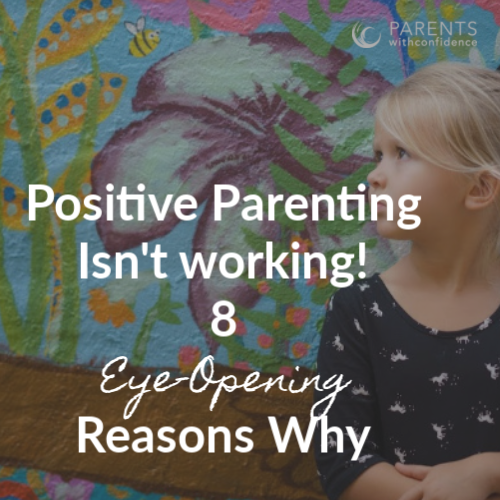Positive Parenting: The Ultimate Beginners Guide to Happier Family
Inside: Positive Parenting is authoritative and seeks to set firm limits with respect when conventional parenting approaches miss the mark on promoting long-term cooperation and respect.
Being hunched over the kitchen counter 10:30 pm, popping chocolate-covered almonds and Googling, “How to get kids to listen” is not how we envisioned the experience of parenting.
After all, wouldn’t raising a child come naturally?
Just as naturally as a child comes into the world parents are expected to inherently know how to grow and guide a complex human being in a messy and complicated world (all while making it look Pinterest perfect too).
I call B.S.
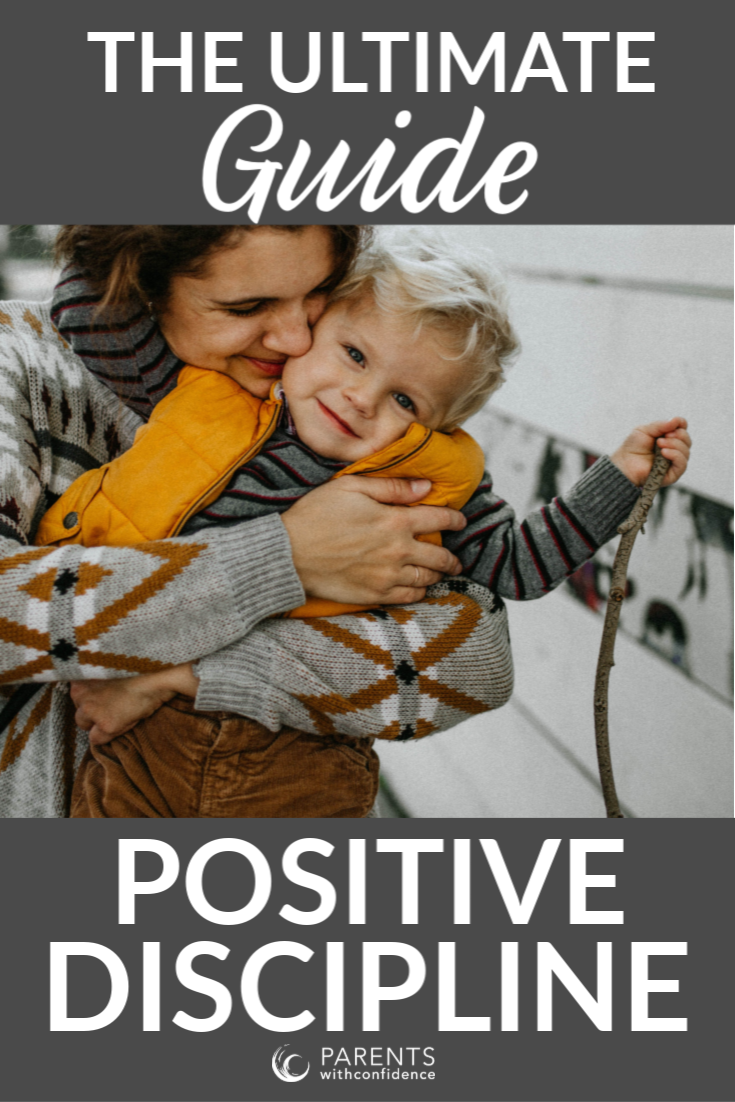
This might work for some of us, but for many parents, unforeseen factors have led them to seek out new ways of disciplining and guiding their children, which is how many parents discover positive parenting.
Consider this your one-stop ultimate guide to positive parenting.

Positive parenting
Would you feel comfortable doing the work of an electrician, lawyer or chef without having any training and education in those fields? Imagine showing up as a blank slate on the first day and being asked to make a souffle or set up a circuit board, yikes!
How can it be that for raising a human being, the most complicated and grueling job on the face of the earth– no training or education is deemed necessary?
When humans don’t know what to do we default to what comes most naturally. Often times what we ‘know’ about parenting isn’t what best meets the developmental and emotional needs of a child and can even be emotionally damaging to them (i.e physical violence, punishments, threats, fear, and shame).
Enter positive parenting (also known as a positive discipline).
What is positive parenting?
Positive parenting techniques stem from an authoritative parenting approach and seek to set firm limits with respect, which helps raise emotionally healthy kids (and improve their behaviors too).
Read more about 5 main positive parenting concepts and how they boost your child’s emotional well-being (from some of the leading experts in the fields of developmental psychology and behavioral science) in >> 5 Positive Parenting Techniques that Raise Emotionally Healthy Kids
When it comes to positive discipline both in the short term and long term this one overlooked concept is the glue that holds it all together. Before you worry about what to say and do when your child isn’t listening or decides to ride the dog like a horse, make sure your ‘discipline house’ is in order with this foundation concept >> This Positive Parenting Tip is GOLD for promoting positive behavior
Why is positive parenting the best choice for my child and family?
Beyond it being more beneficial to your child’s social and emotional skills and mental health positive parenting has some really amazing side effects on a family system. Read more about how it’s changed our family in >> This is Why Positive Parenting Skills WILL Change Your Family Forever
Positive Parenting and Discipline
One of the most challenging parts of how to be a positive parent is acquiring new tools and approaches for handling challenging and disruptive behaviors. Positive discipline challenges a parent to respond to a child instead of reacting out of emotion (hello threats, yelling and criticism).
We’ve all been there, but your child’s future mental health and well-being will benefit big time from learning another way. Learn what damage can happen in > How to Discipline a Child Without Criticism and Shame
Before approaching how to discipline with your child please read this important article that will change your perspective FOREVER: The one Thing you Must Know about disciplining a child
Handling frustrating behaviors like whining, tantrums and sibling arguments in a positive way is HARD. Here are 12 of the most difficult child behaviors and how to respond to them with Positive Discipline >> Positive Discipline Made Practical: 12 Behaviors and Solutions
As parents in my therapy office often remind me, we do have to get out of the house quickly sometimes, so how do we inspire our child to listen without resorting to fear, threats and intimidation when those things do have the instant gratification of producing quick behavioral responses? Learn how in >> How to Get Your Child to Listen Without Yelling
Examples of Positive Parenting Skills
Handling our child’s verbal and physical aggression is one of the most challenging positive parenting skills but it is possible. Get the step by step plan here >> How to be a Positive Parent with an Aggressive Child
> How to be a Positive Parent During Holiday Stress
The challenges of positive parenting
Let’s be honest, if you feel overwhelmed or frustrated with positive parenting you’re not alone. Changing the way you do things with your child doesn’t come easy. There are many hurdles to jump when it comes to getting on board with being a positive parent.
Here are 8 reasons why Positive Parenting Isn’t working and what to do about it >> Positive Parenting Isn’t Working: 8 Eye-Opening Reasons Why
Positive Parenting is the roadmap to a happier family
I truly believe this with every therapist and parent bone in my body. Both professionally in my therapy office and in my own home I have witnessed the ability of respectful positive discipline to change relationships and family dynamics, not to mention the enormous positive impact it will have on your child’s future emotional well-being.
If you’re looking for more support with implementing positive parenting techniques you’ll find it in my ebook Parenting with Confidence!
(along with a child therapist’s tips on promoting cooperation, trust, and strong family bonds without damaging your child’s emotional health!)
A peek at what’s at your fingertips after downloading:
**How to set effective limits without negatively impacting your child’s self-esteem
** Why we’re parenting with a blindfold on if we don’t understand this one thing about our child
**The simple thing that when done daily, is trans-formative for social and emotional development
**The HUGE mistake parents make when it comes to encouraging better cooperation and listening
Grab it HERE!